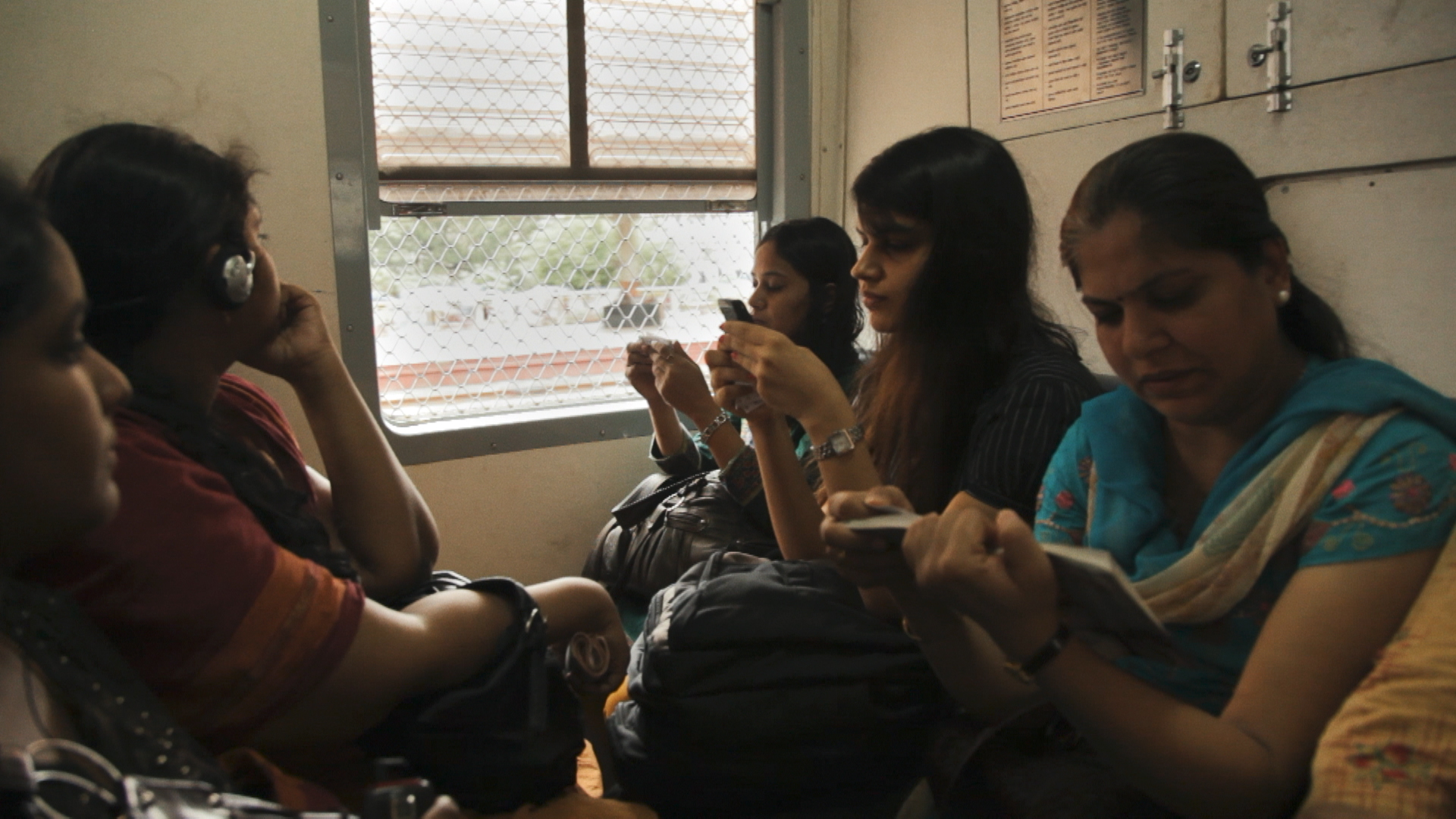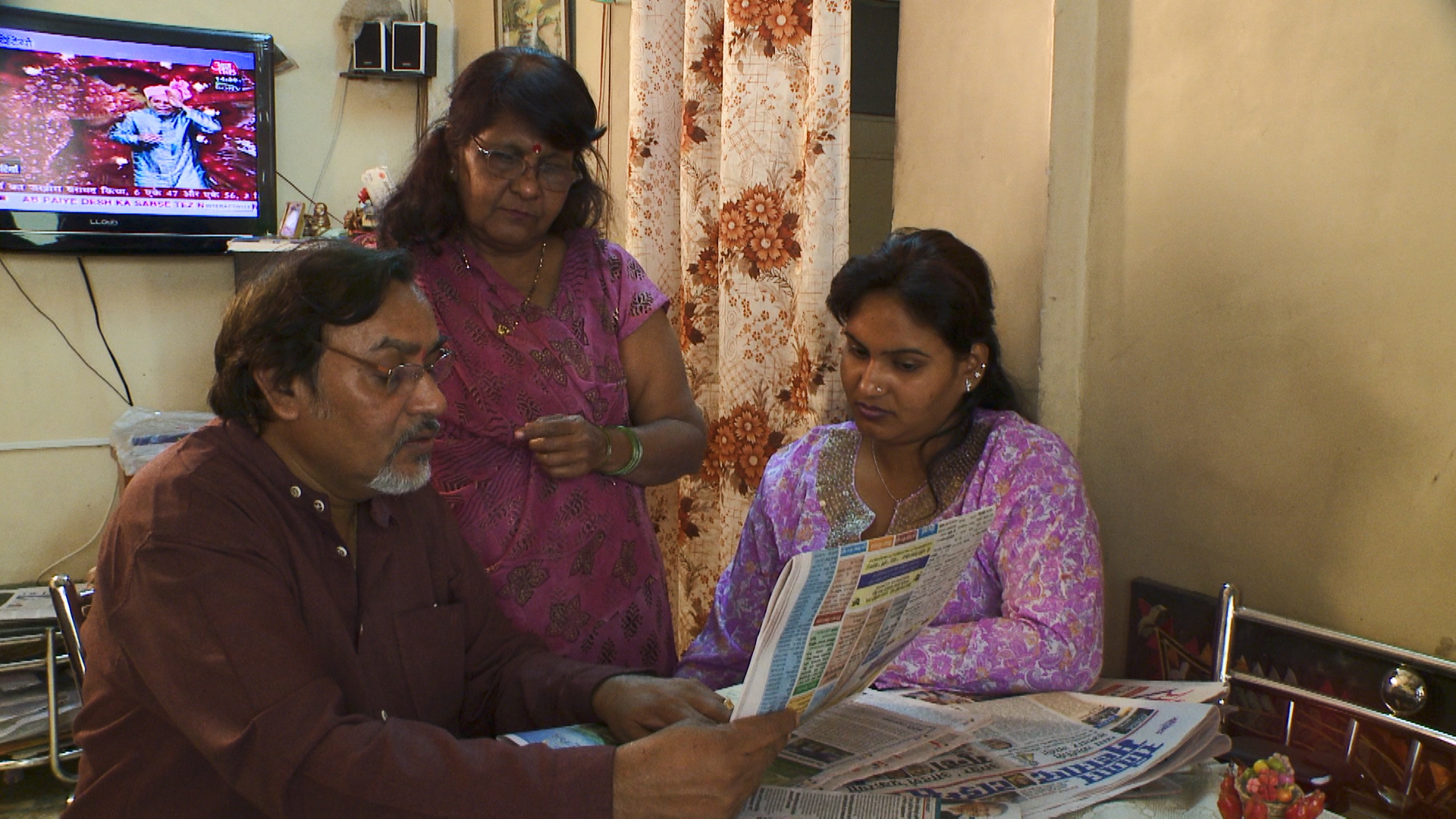“If I had a choice, I’d not get married. But given the society and family I have grown up around, I need to. I’d love to reborn as a European and then get married at 40 or something. Or not,” says Aditya Bagree, shortly after his engagement to Ritu, one of the protagonists of Sarita Khurana and Smriti Mundhra’s documentary, A Suitable Girl. The documentary, shot over four years, won the Albert Maysles New Documentary Director Award In the Tribeca Film Festival, 2017 and was nominated for a Jury Award.
Shot over four years, it documents the negotiations three modern-day urban, English-speaking women in their 20s—Ritu, Dipti and Amrita—make with the social expectations out of their marriages and futures. While a lot of Indian women are choosing their partners themselves, there is still a prevalent trust in the institution of arranged marriages. Though these marriages seem to have shed their implied connotations of familial coercion, it still remains an object of pressure that often borders on emotional blackmail.
Videos by VICE
While a documentary emerging out of the United States addressing arranged marriages in India runs the risk of being a product of a Western gaze that dismisses the social institution as “backward”, “oppressive” and “regressive”, A Suitable Girl actually looks into the nuances of the way things function vis-a-vis arranged marriages and personal freedom. While it’s easy to make fun of Dipti as she wishes to be married soon as she blows out the candles on her birthday cake, the film actually sympathises with her pain and disappointment, and respects her choices through the process of finding and meeting Kartik, who she eventually marries.
With Ritu and her obviously upper middle class family, Mundhra and Khurana explore the larger picture of social expectations that transcends the limits of just her immediate family; distant relatives probe and enquire about her marriage prospects and blame her parents for not looking “hard enough” for a groom. For Seema, Ritu’s mother, who is an “alliance consultant” aka a matchmaker, this is a doubly hurtful taunt that implies that not only is she fulfilling her duties as a good parent but is also failing her profession.

All the three women are representative of the contemporary working Indian women; they have careers they want to keep and yet see the need to marry and “settle down”. With the proverbial biological clock always running against career growth charts, these women either to choose to keep their jobs and try to balance it out, or stop working altogether. While this is very pronounced in the documentary’s depiction of Indian marriage systems, it’s also (unfortunately) a problem surrounding the lives of women everywhere in the world.

While A Suitable Girl is set in India, and very specifically speaks of the marriage market here, it is also universal in the way it goes about exploring themes of body shaming against very set ideals of beauty and desirability, and the onus of expectations of sacrifice falling on women. It reads the subtleties of the situation and acknowledges the immense love parents hold for their daughters; to drive the daughters into marriage is not necessarily an action that emerges out of a lack of love but it is, essentially, a reaction to the strict social codes that have trouble keeping up with the changing status of working women in the society.
With Amrita, we see the pain of displacement as she moves from the bustling metropolis of Delhi to the small town of Lokha. As she transitions from being an outgoing woman in her late twenties to a woman who always has to wear constricting sarees and have her head covered, we see an extremely sad consequence of the patriarchal expectations that marriage traps women within. With an MBA degree, she had expected to work in her husband’s family business but ends up being the cooking, cleaning housewife that she was scared of becoming. Even with her decision to stick to this marriage out of love, the narrative is sympathetic and respectful of.

While the film is on Amazon Prime in the US, and was screened at the Jio MAMI Film Festival this past year, the filmmakers are in talks of finalising an Indian distribution. It’s a film that not only dismantles stereotypes of arranged marriages within India, but also introduces much-needed nuances that we need to adopt when talking of gender roles and patriarchal expectations out of both men and women, in contemporary India.




